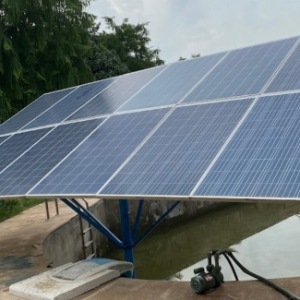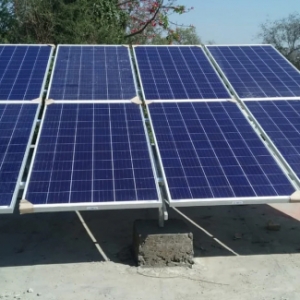Introduction:
In recent years, the agricultural sector has witnessed a paradigm shift towards sustainable and eco-friendly practices, and the adoption of solar motor pumps for irrigation is at the forefront of this transformation. Solar-powered irrigation systems are gaining popularity due to their numerous advantages over traditional diesel or electric pumps. In this article, we will explore the top five advantages of using solar motor pumps for agricultural watering.
Cost Efficiency:
One of the primary advantages of solar motor pumps is their cost efficiency. Traditional irrigation methods often rely on diesel or electric pumps, which incur ongoing fuel or electricity expenses. In contrast, solar pumps harness energy from the sun, providing a clean and renewable source of power. While the initial investment in solar pump installation may seem high, the long-term savings in operational costs make it a financially sound decision for farmers.
Solar motor pumps eliminate the need for fuel or electricity purchases, reducing the overall cost of irrigation. Additionally, governments and organizations often provide subsidies or financial incentives to encourage the adoption of sustainable agricultural practices, further easing the financial burden on farmers.
Environmental Sustainability:
The environmental impact of traditional irrigation methods is a growing concern in the face of climate change. Diesel pumps contribute to air pollution, emitting harmful gases such as carbon dioxide and nitrogen oxides. On the other hand, solar motor pumps generate electricity without any emissions, making them a clean and environmentally friendly alternative.
By harnessing solar energy for irrigation, farmers can significantly reduce their carbon footprint, contributing to a more sustainable and eco-friendly agricultural sector. This not only benefits the environment but also aligns with the global push towards sustainable development goals.
Reliability and Low Maintenance:
Solar motor pumps are known for their reliability and low maintenance requirements. Traditional pumps, especially diesel ones, are prone to breakdowns and require regular maintenance, leading to downtime and increased operational costs. Solar pumps have fewer moving parts, reducing the likelihood of mechanical failures and the need for frequent repairs.
Moreover, solar motor pumps have a longer lifespan compared to traditional pumps. With proper installation and routine maintenance, these systems can provide consistent and reliable irrigation for many years. This reliability is crucial for farmers who depend on a steady water supply for their crops.
Independence from Grid Power:
One of the significant challenges faced by farmers using traditional electric pumps is their dependence on grid power. Power outages can disrupt irrigation schedules, potentially harming crops. Solar motor pumps operate independently of the grid, ensuring a continuous and reliable water supply even in remote or off-grid areas.
This independence is especially beneficial for farmers in developing regions where access to electricity is limited. By harnessing solar energy, farmers can overcome the challenges associated with unreliable power sources and ensure a consistent water supply for their agricultural activities.
Water Conservation:
Water scarcity is a pressing global issue, and efficient water use in agriculture is crucial for sustainable water management. Solar motor pumps contribute to water conservation by enabling precise control over water distribution. These systems can be equipped with advanced technologies such as drip irrigation or precision sprinklers, allowing farmers to optimize water usage and minimize wastage.
Additionally, solar pumps can be integrated with sensors and smart controllers that monitor soil moisture levels and weather conditions. This data-driven approach ensures that water is used only when necessary, preventing over-irrigation and promoting water conservation.
Conclusion:
The adoption of solar motor pumps in agriculture represents a significant step towards a more sustainable and resilient farming future. From cost efficiency and environmental sustainability to reliability and water conservation, the advantages of solar-powered irrigation are undeniable. As technology continues to advance and awareness grows, solar motor pumps are poised to play a pivotal role in reshaping the landscape of agricultural practices worldwide. By harnessing the power of the sun, farmers can not only improve their economic viability but also contribute to a greener and more sustainable planet.






